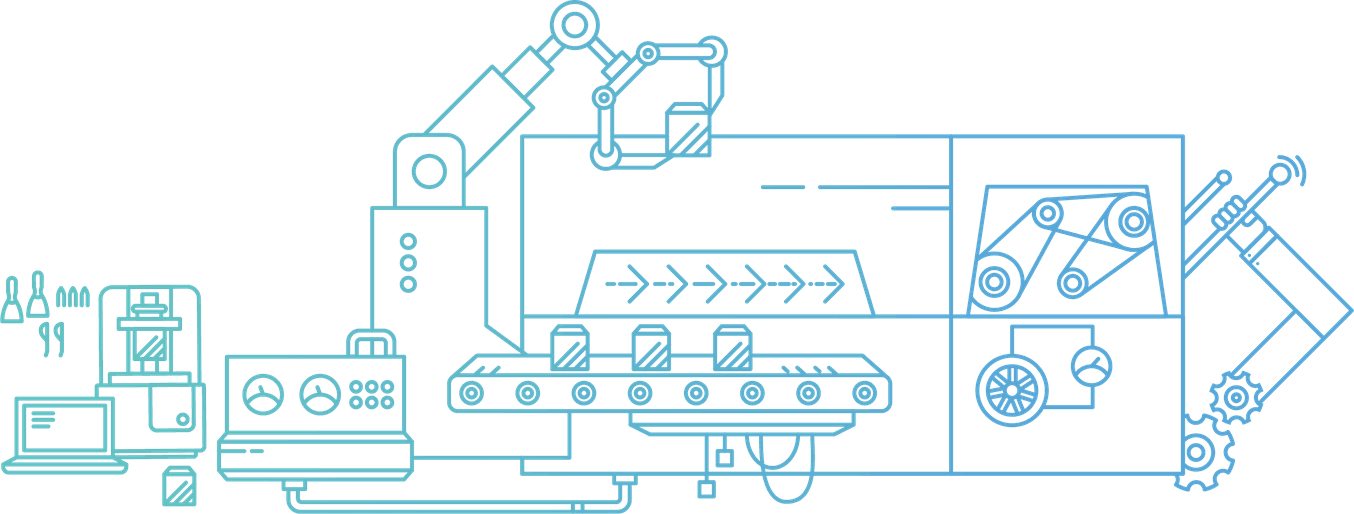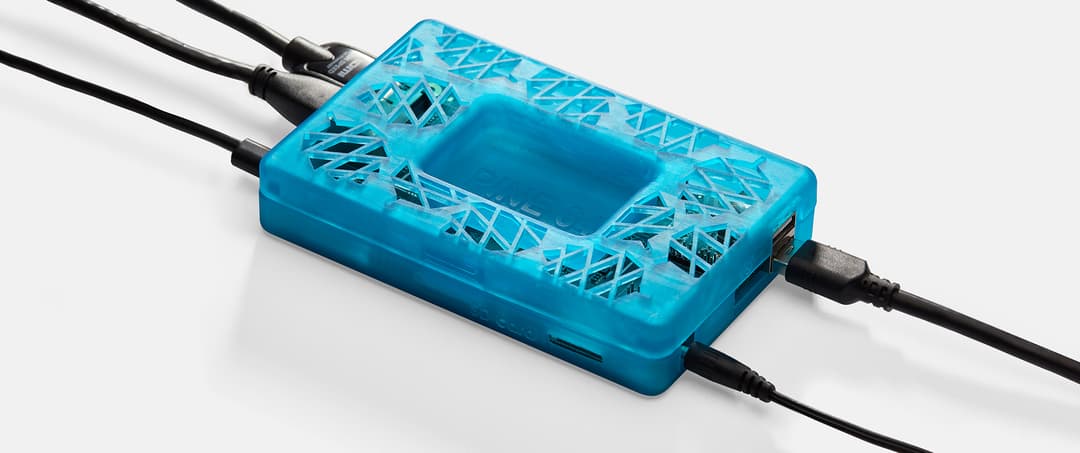
In honor of our conference on digital manufacturing, The Digital Factory, Formlabs is releasing a limited-run podcast! In this series, hosted by O’Reilly Media’s Jon Bruner, we’ll explore the future of the factory floor through conversations with experts who are changing the way things are made.
In episode 2, we sit down with Gian Paolo Bassi, CEO of SolidWorks, one of the leaders in 3D computer-aided design (CAD) technology. SolidWorks has revolutionized the availability of sophisticated, parametric solid modeling since its release in 1995. During his tenure as CEO, Bassi has spearheaded the development of future product and technology strategies and collaboration with a strong user community.
Play the full podcast below to hear:
- Bassi’s design, engineering, and entrepreneurship predictions
- The one thing that SolidWorks CAD customers are asking for now
- How software companies like SolidWorks are bridging gaps and closing chasms
Why Integrated Platforms Are What's Next for CAD
CAD has come a long way in recent years, and SolidWorks has been working more and more to help engineers and designers cross disciplinary boundaries.
On Eliminating the Distance from Imagination to Asset:
“You asked me whether these tools were for highly sophisticated and specialized engineers. I would say it is for sophisticated people. People that are sophisticated in terms of imagination. Not in terms of knowing exactly where to click in order to transfer their imagination into a digital intellectual property. Our job as software developers is to eliminate the distance between imagination and digital assets.”

On the Shift from Specialists to Generalists:
“What we are seeing in the industry is that specialists of CNC programming, the premise of digital manufacturing, are retiring, and the new kids coming out of school have a much more rounded background. Today, mechanical engineers have knowledge across many more disciplines. For instance, they know about electrical design, they know about electronic design, and they also know about manufacturing. Today, we see more and more not mechanical designers but mechatronic designers. And the trend, I believe, is going to be designers that are fully rounded from design to manufacturing.”
On the Lowered Barrier to Entry for Entrepreneurs:
“Our customers are asking right now for one and only one thing. They want us to help them be more innovative. Not long ago, they wanted us to help them to be more productive. This is changing. They don’t ask us about squeezing time or reducing the number of clicks, and not even reducing the cost. The real imperative is innovation.
“The barrier to entry for new entrepreneurs is lowering by the day, so the incumbents are challenged every day. And the only way to survive, and the only way to thrive, for companies, is to be at the leading edge of the technologies and also, I would say, of the imagination. Sometimes you don’t need a new technology to be innovative. You just need to put it together in a better way, or create a service, or add a service in a sector that was not possible.”

On Design for Manufacturing:
“In addition to shortening the cycle time, you can put information critical to inform the design itself upfront in the design process. If you know in advance that a shape is not going to withstand a given load, you just don’t use the shape, you change it. Today, at Solidworks, we are developing technologies where you can ask the computer to come up with a recommendation for the optimal shape for a given type of job. If you knew upfront costing characteristics, manufacturing ability, the performance of the material, if you could factor that in upfront in the design process, you would make a much better design, you would waste much less time.”
On the Power of Zero and Why Platforms Are the Future:
“We like to call it ‘the power of zero.’ Reducing the distances. Look at the revolution of the transportation industry introduced by the simple introduction of a platform like Uber. Uber is not a taxi company. They don’t own a single taxi, they don’t employ drivers, they have created a platform. Same story with Airbnb. They don’t own assets, they don’t own hotels or other physical assets, they have created a platform for people to share. This is going to help tremendously in developing countries, and also redistribute opportunities in developed countries.
“Think about the manufacturing shop in Michigan that has excess capacity. How is he or she able to reach customers on the other side of the world for a small run, for instance? If you don’t have a platform that helps you make those decisions, it is very difficult. And this shop in Michigan maybe has a lot of lost opportunities. Because nobody’s helping him connect the dots.”
Join the Conversation at The Digital Factory

Stay tuned for the next episode of the podcast in a couple weeks, and consider joining Formlabs on June 5 in Cambridge, MA for more digital manufacturing conversations at The Digital Factory. Intermingle with business pioneers, investors, innovators, startups, and thought leaders reinventing the factory floor.


